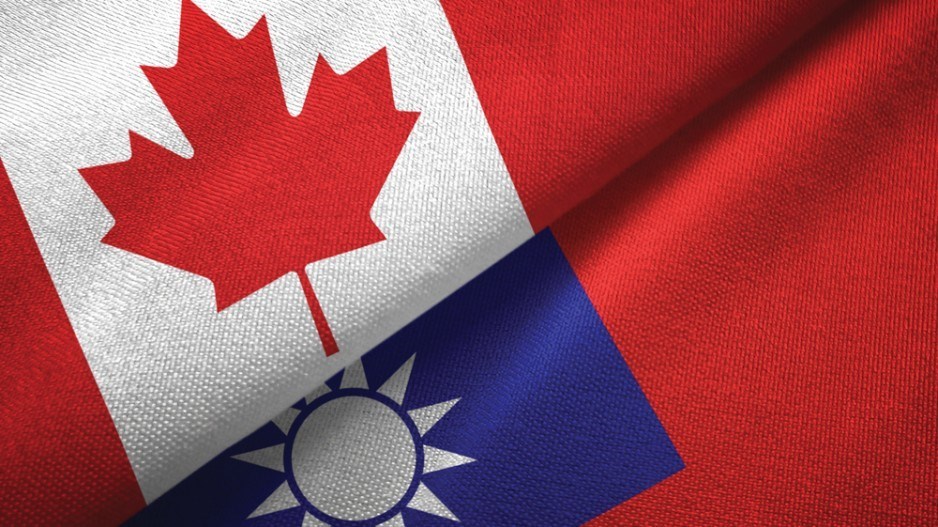Last year’s signing of the Foreign Investment Promotion and Protection Agreement (FIPA) is expected to bring Canada and Taiwan closer in economic partnerships, according to experts.
“FIPA is a landmark agreement between Taiwan and Canada,” said Angel Liu, director general of the Taipei Economic and Cultural Office in Vancouver.
“There are some bureaucracies, thresholds or some labour or environmental standards [issues] that, through FIPA, we can facilitate.”
She was among a host of officials and experts from Taiwan speaking late last month at a World Trade Centre Vancouver event. The conference zeroed in on business opportunities in Taiwan and how Canadian companies can capitalize on investment opportunities there following the signing of FIPA this past December.
FIPA helps provide more relaxed investment procedures for businesses making investments in each other’s territory by streamlining the process or foreign regulations and reducing some burdens on the licensing or reviewing process, according to Liu.
The Taiwan government hopes that FIPA will help attract more investments from Canada and deliver the image of Taiwan as a welcoming market for foreign investors, she added.
“It is just the beginning because it takes time for both sides to digest and to get to know each other more.”
There is “huge space” for growth in trade volume and business partnerships between Canada and Taiwan, especially at a time when both countries are looking to reduce their economic reliance on China, according to Huai-Shing Yen, deputy executive director of the Chung-Hua Institution for Economic Research.
Taiwan was Canada’s 12th-largest trade partner in 2022. Canada’s exports to Taiwan accounted for less than 0.5 per cent of its total exports and Canada’s imports from Taiwan accounted for one per cent.
“This suggests that Taiwan is not yet considered as a main supply source for Canada and the same situation applies the other way around,” said Yen.
She said the bilateral investment between both countries is also “lower than ideal” as Canada accounted for 0.1 per cent of the foreign investment in Taiwan over the past 10 years. And some areas have significant potential for growing trade and partnerships between Taiwan and B.C.
“The first potential is for agricultural products. And the second potential I would say is about the critical mineral supply, because Taiwan has a growing demand of some critical raw materials on which we want to diversify our import suppliers,” she said.
There are about 30 critical raw materials that Taiwan is highly dependent on China, and Canada has great potential to become Taiwan’s new partner in mineral supply, she added.
Information and Communications Technology (ICT) is another sector Taiwan companies are looking to relocate their investment to countries other than China.
“I understand that Canada wants to develop a strong ICT industry and it’s also an important area B.C. would like to further develop. … We can provide the ICT products and also can be your new source of ICT investments in B.C. as well as in Canada,” said Yen.
Liu said FIPA is a great step further but she also hopes the Canadian government seriously considers Taiwan’s application to join the Comprehensive and Progressive Agreement for Trans-Pacific Partnership (CPTPP) to unlock more trade and investment opportunities between the two countries.
“[We] encourage CPTPP members, including Canada, to start informal discussion and negotiations with Taiwan, so we can at least start the negotiation informally.”



